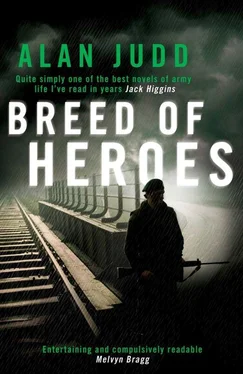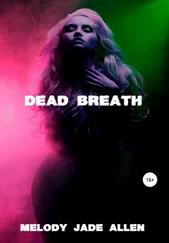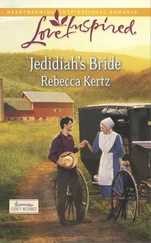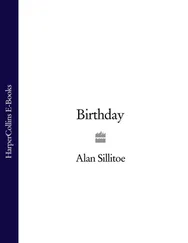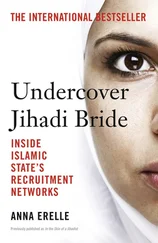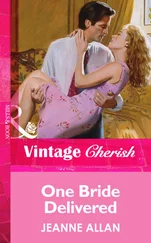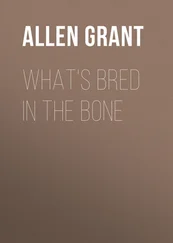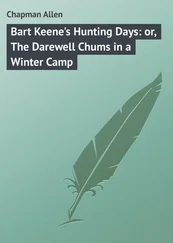Alan Judd - A Breed of Heroes
Здесь есть возможность читать онлайн «Alan Judd - A Breed of Heroes» весь текст электронной книги совершенно бесплатно (целиком полную версию без сокращений). В некоторых случаях можно слушать аудио, скачать через торрент в формате fb2 и присутствует краткое содержание. Год выпуска: 2011, ISBN: 2011, Издательство: Simon & Schuster UK, Жанр: Современная проза, на английском языке. Описание произведения, (предисловие) а так же отзывы посетителей доступны на портале библиотеки ЛибКат.
- Название:A Breed of Heroes
- Автор:
- Издательство:Simon & Schuster UK
- Жанр:
- Год:2011
- ISBN:9781847397720
- Рейтинг книги:3 / 5. Голосов: 1
-
Избранное:Добавить в избранное
- Отзывы:
-
Ваша оценка:
- 60
- 1
- 2
- 3
- 4
- 5
A Breed of Heroes: краткое содержание, описание и аннотация
Предлагаем к чтению аннотацию, описание, краткое содержание или предисловие (зависит от того, что написал сам автор книги «A Breed of Heroes»). Если вы не нашли необходимую информацию о книге — напишите в комментариях, мы постараемся отыскать её.
Alan Judd tells Thoroughgood’s tale with verve, compassion and humour. The result is an exceptionally fine novel which blends bitter human incident with army farce.
A Breed of Heroes — читать онлайн бесплатно полную книгу (весь текст) целиком
Ниже представлен текст книги, разбитый по страницам. Система сохранения места последней прочитанной страницы, позволяет с удобством читать онлайн бесплатно книгу «A Breed of Heroes», без необходимости каждый раз заново искать на чём Вы остановились. Поставьте закладку, и сможете в любой момент перейти на страницу, на которой закончили чтение.
Интервал:
Закладка:
Sharing the money with Van Horne was the worst aspect of the deal with Beazely — not the fact of sharing but the physical act of counting and handing over the cash. Handling the money was necessarily conspiratorial and Charles felt shabby and corrupt at such moments. Neither of his associates showed anything but a matter-of-fact, businesslike approach to the transactions, handing over and pocketing the notes as though they had not the slightest interest in them. There was the further problem of what to do with the cash. Charles never went near a bank and he did not care to entrust it to the paymaster, since that would be official. When his wallet would hold no more he took to stuffing it into a sock in the bottom of his kitbag. One night he dreamt of being raided by the Inland Revenue whilst the CO argued passionately on his behalf, believing him to be innocent.
However, there was no trouble with the arrangement itself. The advantage, so far as Charles was concerned, was that he knew what the Army did and did not want publicised and, through Beazely, what alternatives might appeal to the editorial mind. Events in the battalion area were usually witnessed by either himself and Van Horne or by people they both knew; details of those outside could be got from the PR desk or from other PROs. Van Horne was invaluable. Not only was he sensible and discreet but he had a genius for sniffing out stories around the battalion during inactive periods which resulted in so much favourable publicity — often of the much-desired ‘human interest’ sort — that the battalion came to be used as a show-piece by the PR desk. The CO, despite his aversion for journalism, was delighted.
‘A small war is the best recruiting sergeant,’ he said, after reading an article on the rigour of Assault Commando training, ‘but this is the next thing to it. It’s not all accurate, though. It’s up to you to make sure they get that sort of thing right, Charles.’
During busy periods, when Charles could not get to a phone, Van Horne relayed the information. He also took photographs and was said by Beazely to have an ‘eye’. Charles concentrated on building up a good relationship with the regular journalists, who were on the whole competent and agreeable. Though careful not to poach their stories or angles, he was able to judge from them how to select his own. Their questions displayed the direction of their interests. It was a matter of pride to himself and Van Horne that they fabricated nothing, though it would have been easy to do so. The trouble was, they would both get so involved in their stories that they were hurt and irritated by editorial and Beazely-inspired cuts.
‘I keep on telling you,’ Beazely would say, ‘that sub-editors have no souls. They care only for column inches and circulation figures, not for truth, realism, intelligence and virtue, like you and I. You are casting pearls before swine. Take it from one who knows. I’d be a wealthy man if I’d had a penny for each word I’ve had to keep back from these barbarians.’ He was, in fact, a good teacher. He insisted on reports being short and to the point and usually would alter them only if they were not or as a result of fresh information gleaned from other items of furniture at the bar of his hotel. Sometimes, though, he would cut a passage because his sub-editor would recognise it as not his own. Such passages were invariably Charles’s little essays into social comment. One such began, ‘The children of West Belfast are familiar with colour TVs but cannot name the colours.’ A paragraph of political assessment started, ‘It must be clear to any but the most partisan observer of the Northern Ireland scene that the events of last weekend marked a worsening of the perceived situation for all those involved.’ While there was his exposition of military tactics which needed a footnote to the effect that, ‘39 Airportable Brigade differs from most infantry brigades not only in its role and deployment but also in its provision of equipment and its numbers.’
Beazely would put a line through these forays without removing the cigarette from his mouth, like Wilfrid Owen when writing to the next-of-kin of his dead soldiers. ‘When the Kingdom of the Word takes its rightful place,’ he would say, ‘and the Killers of the Word are burned by flaming adjectives and tied to the stake by unending sentences, then, Charlie, you shall take your rightful place and these fine phrases of yours will be remembered annually. Instead of fighting we’ll all talk, talk, talk. It will be beautiful. But until then keep to the point and save the rest for your prayers.’
Charles once asked him if he had been to university. ‘Yes,’ Beazely replied, with a confident nod. ‘Very much so. Several times, different places, you know. Nowhere very long. You?’
‘Yes. Only one, though.’
‘That’s odd. Van Horne said you hadn’t. Said you went straight to Sandhurst from school.’
‘He’s wrong. I don’t know why he said that.’ He had never discussed his past with Van Horne.
‘Just guessing, I s’pose.’
It was not easy to get the Army to overcome its deep-seated mistrust of the press, but Charles and Van Horne soon found that an air of reluctance and apology, suggestive of irresistible pressure from authority, was the best way of getting things done — better, certainly, than argument. It was best to preface requests for film-crew visits or yet more local-boy stories with the phrase, ‘The CO was wondering whether. .’
Very occasionally the CO did wonder, and then surprisingly. He had grown quieter and more moody and seemed to spend much of his time scheming how to discredit the Provisional IRA. He turned to Charles one day and said, ‘That boy who lost his hand last week, the one whose life we saved. What are you doing about him?’
‘Sir?’
‘Don’t answer questions with questions. Tell me what you’re doing.’
‘Nothing, sir.’
‘Well, you should be. It’s your job, not mine, to think of these things. It’s good publicity for us; we saved his life. Bad publicity for them because they left the bomb lying around. What about getting some of your press friends to do a photograph and a story?’
It was, perhaps, one of Charles’s faults as a PRO that he had still not fully grasped the way that news is made rather than happens. The idea had occurred to him, vaguely, but some shreds of an outmoded notion of fair play still clung to him and it seemed unfair to take advantage of the boy’s condition. Also, he had recently discovered in himself a reluctance to deal with press matters that would not result in profit. He could see no way of working Beazely into this one and his policy in such cases was to keep what the Army loved to call a ‘low profile’. He sought to narrow his life so that all unnecessary initiatives and responses were cut out. ‘Might he not be a bit of a mess, sir?’ he asked.
‘The messier the better. They made him like it, not us. Go and fix it. It’s unpleasant, I know, but we’re at war. Or some of us are.’
The issue presented no problems for Van Horne, who would happily have publicised piles of intestines. They contacted one of the tabloid newspapers which usually had good photographs and which, like the other papers of its kind, excelled in the simple and effective presentation of human interest stories. They arranged to meet a reporter and photographer at the Royal Victoria Hospital.
‘You should give the lad a present,’ said the CO. ‘Go and buy something out of the community relations fund. How do we stand with that?’
‘It’s unused, sir.’
‘Good. Waste of public money otherwise.’
The expedition to buy a present was a major undertaking. It involved changing into civilian clothes and going into the centre of Belfast where a similarly-dressed soldier had been murdered the week before. Being quite unused to mixing with normal people going about their normal business of shopping, Charles could not rid himself of the notion that he was the centre of attention and that every coat concealed an Armalite. He spent a nervous twenty minutes in a bookshop, imagining bombs as well as bullets and paying more attention to cover positions, escape-routes, probable direction of blast and of flying glass than to what he was supposed to be buying. The fact that the main shopping centre was ringed by barriers through which no cars could pass and at which everyone was supposed to be searched did not reassure him. Two girls in front of him had not had their handbags searched and for his part the bulky shoulder-holster containing his Browning had not been discovered. If it had he would have had to produce his ID card, thereby identifying himself as a soldier to everyone around him. He again wore it at the CO’s insistence and felt lopsided and misshapen rather than deadly and confident. He eventually slunk out of the shop with an illustrated sporting encyclopaedia of a kind he remembered having as a child.
Читать дальшеИнтервал:
Закладка:
Похожие книги на «A Breed of Heroes»
Представляем Вашему вниманию похожие книги на «A Breed of Heroes» списком для выбора. Мы отобрали схожую по названию и смыслу литературу в надежде предоставить читателям больше вариантов отыскать новые, интересные, ещё непрочитанные произведения.
Обсуждение, отзывы о книге «A Breed of Heroes» и просто собственные мнения читателей. Оставьте ваши комментарии, напишите, что Вы думаете о произведении, его смысле или главных героях. Укажите что конкретно понравилось, а что нет, и почему Вы так считаете.
